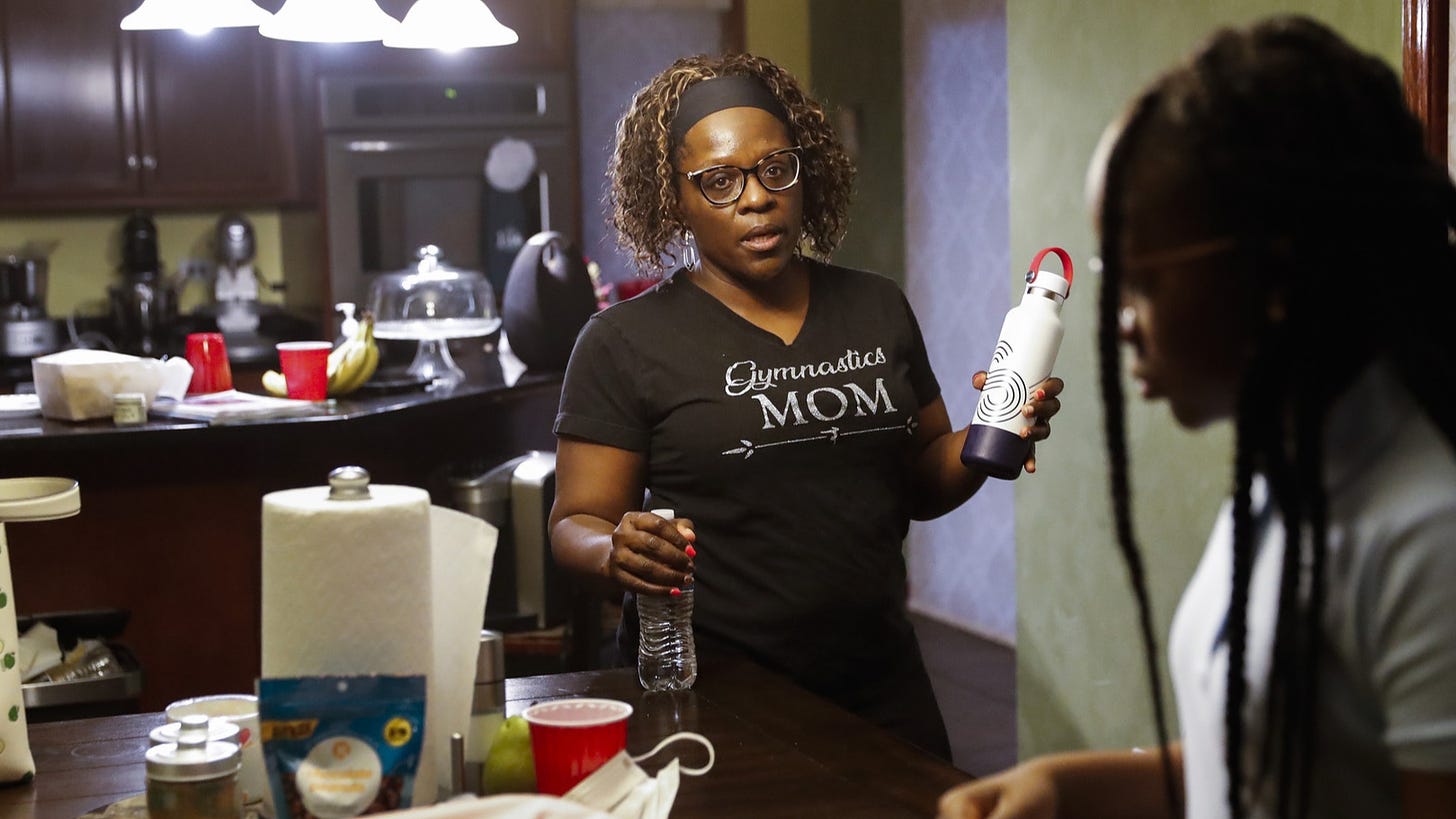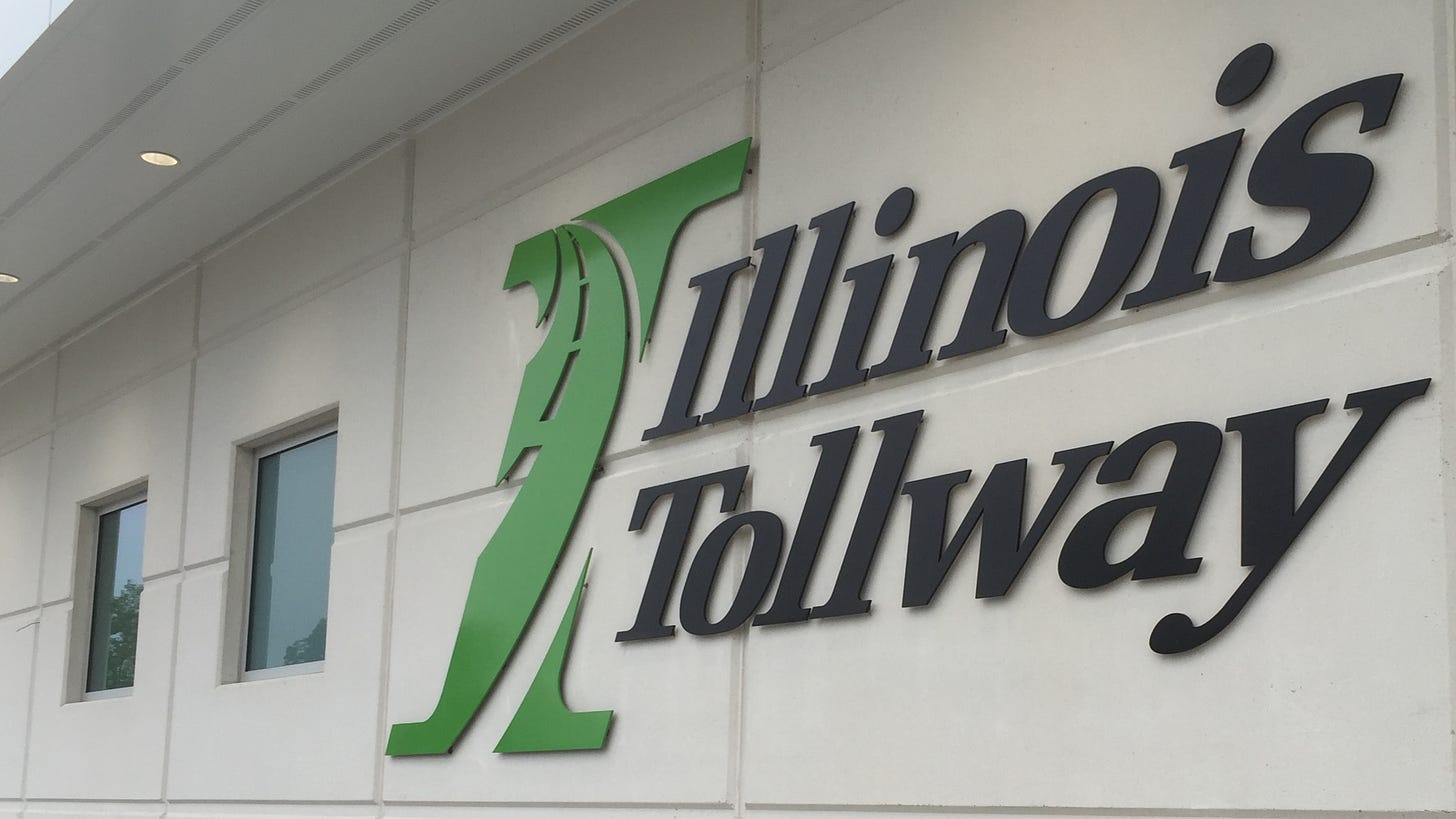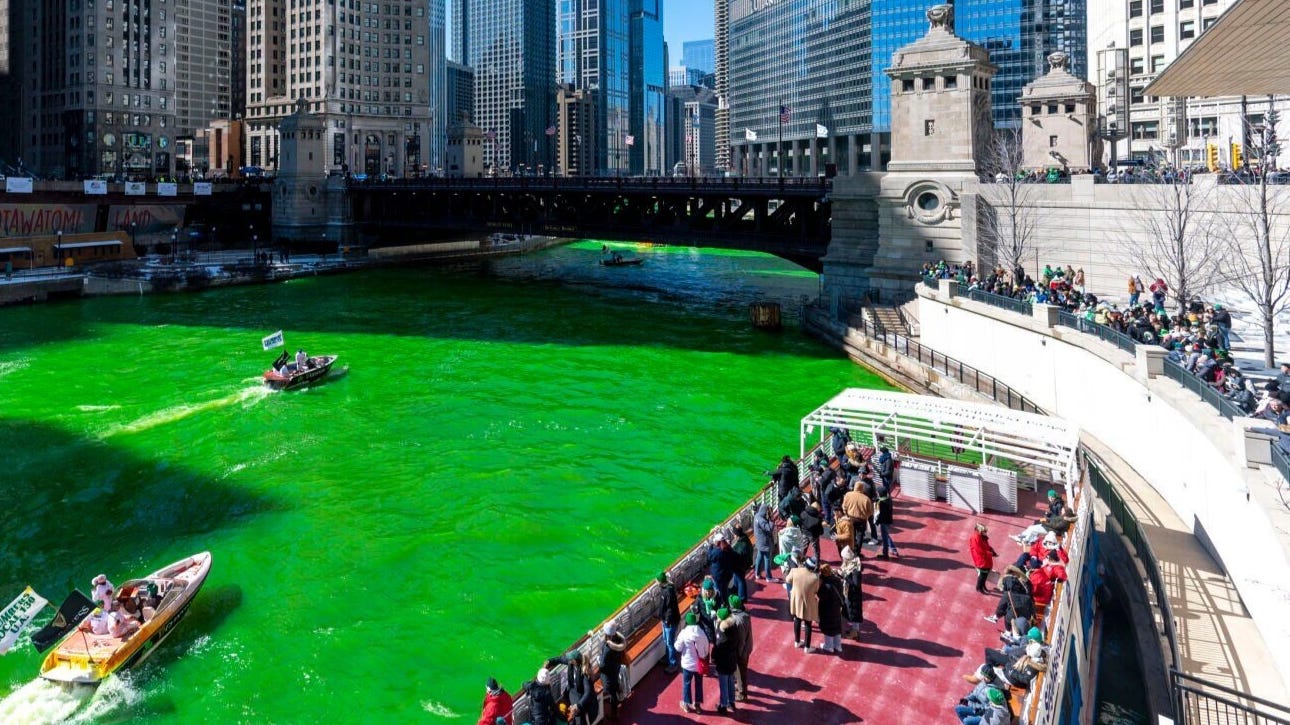THE ILLINOIZE: Monday Free for All
March 21, 2022
We’re not talking about basketball.
The House and Senate are both back in Springfield tomorrow. Each chamber has 16 days on the schedule before the targeted April 8 adjournment. Buckle up.
I’m heading to Springfield tomorrow and will have more for you as we see how lawmakers will get the ship into port.
If you want to stay up on the latest, including breaking news alerts and two subscriber-only newsletters each week, I hope you’ll join us as one of our paid subscribers. It’s how we keep this operation afloat, and we need your help to do it.
It’s just $75 for a year or $7.99 per month. We would be so thankful for your support. Just click below to subscribe!
Drop me a note at patrick@theillinoize.com if you have any questions about subscriptions or any thoughts, questions, comments, complaints, or heaping praise for anything we’re doing here. We want to be better and be valuable to you, too.
Let’s get to it.
YOUR MONDAY FREE FOR ALL
(note: we’re not responsible for paywalls and restrictions from other news outlets)
Only time will tell if billionaire Ken Griffin will be ‘all in’ for the rest of the so-called ‘Griffin Slate’ (Chicago Sun-Times)
They have been dubbed “The Griffin Slate,” based on the expectation that the Republicans running together for some of the state’s top offices will enjoy the financial backing of Ken Griffin, the richest person in Illinois.
But other than GOP candidate for governor Richard Irvin, none of the others on the slate has reported receiving any contributions from the hedge-fund billionaire — or many large donations from anyone else in the two months they’ve been running for statewide office.
Griffin, who donated $20 million to Irvin’s campaign for governor over a month ago, hasn’t given a dime to the other members of the slate headed by the Aurora mayor and his lieutenant governor running mate, state Rep. Avery Bourne, according to Illinois State Board of Elections records.
After announcing their campaigns within days of one another in early January, the six Republican hopefuls appeared together for the first time earlier this month at a Springfield campaign event.
Most won’t say whether they have spoken with Griffin or anyone on his team about what financial support might be coming from the founder and CEO of Chicago-based Citadel.
“It’s an ongoing effort. This is a big state. We’ve got to have the resources to be able to compete in November across the entire state of Illinois,” Demmer said.
The Dixon Republican told the Sun-Times there’d been no word about whether his campaign would be receiving support from Griffin, but he said, “I’ve spoken with some people that are associated with him.”
Griffin spokesperson Zia Ahmed declined to comment on whether Griffin has had contact with Kim, Milhiser, Teresi or Demmer — or if he has plans to donate to their campaigns.
I’ll have more on this tomorrow in the newsletter and who is giving Griffin plausible deniability.
Related: Voting Republican for Illinois governor? Here are the candidates and their platforms. (Belleville News-Democrat)
Why one in five Illinois voters may not have a say in legislative primary elections (State Journal-Register)
‘House that Madigan Built’ covers speaker’s peak to plummet (Associated Press)
(Our conversation on the Madigan book here)
Illinois' pot market isn't up to snuff (Crain’s Chicago Business)
Illinois’ marijuana industry needs a shot of adrenaline.
After a strong start, legal pot sales in the state have slowed recently. Figures released by the state show total sales dropped 14.6% to $117 million in January 2022 from $137 million in December 2021. Of course, you might expect January sales to slow from holiday-boosted December results. And sales were up 32% from January 2021.
Yet this is the first December-to-January decline since Illinois legalized recreational marijuana sales in 2020. It comes on the heels of slowing month-to-month growth, which dropped into single digits between August and November last year, before rebounding 14% in December.
And while combined sales of medical and recreational pot surged 73% to $1.78 billion last year, according to marijuana information site Leafly and Whitney Economics, my colleague, John Pletz, reports the firms project growth will slow this year to 58%.
To some extent, the slowdown reflects a maturing industry moving beyond the initial hyper-growth phase. Pot sales also are coming off a pandemic-induced high in 2020, when lockdowns limited recreational opportunities.
But there’s another big factor holding back the growth of this new industry in Illinois. Legal challenges have stalled the issuance of new retail pot licenses. Some 185 licenses are on ice, essentially freezing the number of pot stores in the state at 110.
I’m not sure how there’s an industry out there where 58% year over year growth is considered lagging, but, alas.
The writer is absolutely right, though, that the state needs to get its act together in bidding, reviewing, and approving new licenses. I know there’s a big push for “equity,” but the majority of the budding (get it?) industry is controlled by just a handful of companies. This isn’t like a comic book shop where anybody who likes Superman can get a lease and open up a storefront. This is a complicated space and will remain that way for a while.
Two years. 33,000 dead. Tracing the pandemic’s toll across Illinois and one doctor’s family. (Chicago Tribune)
It was the early weeks of the pandemic. A mystery illness was spreading across the Chicago area. And Dr. Sandra McGowan-Watts felt powerless.
She was a family doctor but could do little as her husband and mother-in-law fell ill. Her mother-in-law soon died. Her husband clung to life for a week longer before the virus claimed him too, at age 51.
“I’m a doctor,” she said last week, the pain fresh in her voice. “I’m supposed to be able to fix people and change things, and I can’t even help the person I love the most.”
McGowan-Watts’ husband and mother-in-law joined an early trickle of deaths that soon morphed into massive waves, claiming, collectively, at least 33,000 Illinois lives since the first death was announced two years ago, this week.
Even amid shutdowns desperately imposed to limit the infection’s spread, COVID-19 killed at a rate far higher than not just the flu and pneumonia, but surged at times to kill more Illinoisans than cancer or heart disease.
It struck Chicago’s majority-Black and Latino neighborhoods hardest at first before the pandemic saw the first of several shifts — ultimately killing more residents proportionally in Illinois’ southern tip than Chicago.
More contagious variants swept across the state, battling with newly developed vaccines that blunted how much damage each version of the virus could do, at least for those who took the shots. For those who didn’t, the odds of death got far worse at times — creating what public health officials called a “pandemic of the unvaccinated.”
With each new variant and scientific breakthrough, risk calculations have changed. Now, for the younger and boosted, risks of dying from COVID-19 may be less than the risk of dying in a traffic crash, while for those older and unvaccinated, the risks may be exponentially higher.
The losses can be traced to late-winter days two years ago, when a new threat forced daily news conferences from top government leaders, including one that Gov. J.B. Pritzker opened with news he said he “dreaded.”
I’d like anyone who thinks COVID is/was no big deal to read Dr. McGowan-Watts’ story.
Related: Green light at the end of the tunnel? Plummeting COVID-19 metrics put Illinois on the map — to keep off the masks (Chicago Sun-Times)
New first probable COVID death in Illinois uncovered — a 64-year-old woman from Chicago who thought she had a cold (Chicago Tribune)
Editorial: Illinois lawmakers should pass a state child tax credit (Chicago Sun-Times)
Reinstating this vital lifeline for some of the country’s neediest people is unlikely because it’s tied up with President Joe Biden’s massive Build Back Better initiative, which is all but dead.
There is something state lawmakers can do, however: Pass a state child tax credit. This was a key component of Gov. J.B. Pritzker’s platform when he was running for governor and later when he tried unsuccessfully to get the income tax referendum on the ballot.
While what’s being proposed in Springfield is not as generous as what families had been receiving at the federal level, a $600 state child tax credit would help folks in need at a time when inflation is severely squeezing household budgets. Lower-wage workers usually spend, rather than save, any bump in income, so not only would this help struggling Illinois families, it would also stimulate private sector economic growth.
Dozens of lawmakers have signed onto the legislation in the Illinois Senate (SB3774) and House (HB4920), which would create a child dependent tax credit and expand the earned income tax credit. There’s ample evidence the federal “refundable” earned income tax credit has become one of the country’s more effective anti-poverty programs.
A state child tax credit would provide critical assistance to Illinois residents who just want to do their jobs, by helping them get to and from work, pay for day care, buy groceries, and cover rising housing and utility costs.
If the General Assembly passes the bills as currently drafted, 4.8 million people in Illinois —1.9 million of them children — would benefit, according to Ralph M. Martire, executive director of the Center for Tax and Budget Accountability.
Nowhere in this editorial does the Sun-Times suggest how to pay for this tax credit. There are lots of good public policy ideas out there, but tax dollars don’t grow on trees, and we shouldn’t be pushing the General Assembly to raise taxes when everyone is being pinched economically.
Editorial: Governor after governor has failed to reform the Illinois Tollway. When will promises become action? (Chicago Tribune)
Reform is meaningful only when the politician pledging it actually follows through. In the case of the Illinois Tollway, governors on both sides of the aisle have vowed to reform the troubled agency dating back to the 1990s. Yet each one of them proved to Illinoisans that their promises were nothing but political blather.
Gov. J.B. Pritzker is the latest to join the line. After taking office in 2019, he appointed former Peoples Gas President Will Evans as the Tollway’s board chairman and backed former Chicago Housing Authority CEO Jose Alvarez as the agency’s executive director. “It’s a new day for the Illinois Tollway,” Pritzker said after appointing Evans. “I’m proud to usher in a new wave of transparency and accountability at this critical agency.”
New wave of transparency and accountability? Far from it.
Evans embarked on a power grab in which he commandeered authority over the agency’s day-to-day operations as well as billions of dollars in contracts. That left Alvarez’s authority significantly weakened. Evans also voted on a hefty Tollway contract involving an engineering firm where he once worked, the Chicago Sun-Times reported.
Meanwhile, Alvarez made sure nine of his former CHA colleagues got well-paying jobs at the agency amounting to an overall tab of $1.3 million, the Daily Herald reported Wednesday.
Both men got their jobs after receiving strong endorsements from former ComEd lobbyist John Hooker, according to the Sun-Times. As it turns out, Hooker had his own baggage. In the fall of 2020, he joined the list of people under indictment for their alleged role in the ComEd bribery scheme that ultimately led to charges against former House Speaker Michael Madigan.
The Tollway needs a complete reboot. It is one of the most inefficient, bloated, out-of-touch government bodies with absolutely no accountability to the public. I don’t know if a public-private partnership is the answer or hiring an outside management company to run operations is the answer. Maybe the legislature should just blow the whole thing up and start all over again.
Irish eyes have long been smiling on Illinois government, politics (Decatur Herald & Review)
Besides a few hiccups over the years, the [Chicago River] has been an emerald green for every St. Patrick’s Day celebration since 1962, when the tradition began under Chicago Mayor Richard J. Daley as a kickoff to the day of festivities, which included one of the largest parades in the country.
Hizzoner himself was the proud grandson of Irish immigrants.
This river-dyeing tradition celebrating one particular ethnic group provides perhaps the best personification of the large impact that the Irish Americans have had on Illinois since arriving in large numbers in the 1840s.
According to the U.S. Census Bureau, about 11.1% of Illinois residents claim Irish heritage. Cook County has more than 460,000 people claiming Irish lineage, the largest of any county in the country.
In all, nearly a quarter of Illinois governors claim some Irish ancestry. At least seven Chicago mayors — most within the past century — can say the same. Mother Jones, the prominent labor activist who organized coal miners in central and southern Illinois, was an Irish immigrant.
Though the machine — which brought together a collection of white ethnic groups like the Irish, Poles and Italians as well as Jews and African Americans, was put together in 1931 by Chicago Mayor Anton Cermak, a Czech immigrant — he died two years later, leaving his organization and Chicago City Hall to a collection of mostly Irish-American politicians with last names like Kelly and Kennelly.
Brenden Moore is doing some of the best work at the Statehouse these days. Go read this piece.
By the way, Irish Catholic Governors in Illinois aren’t the norm: Pritzker (Ukranian Jew), Rauner (German Episcopalian), Quinn (Irish Catholic), Blagojevich (Serbian Orthodox), Ryan (Irish Methodist), Edgar (Scottish-English Baptist).
SOME TOP LINKS FROM LAST WEEK
JOIN US
















